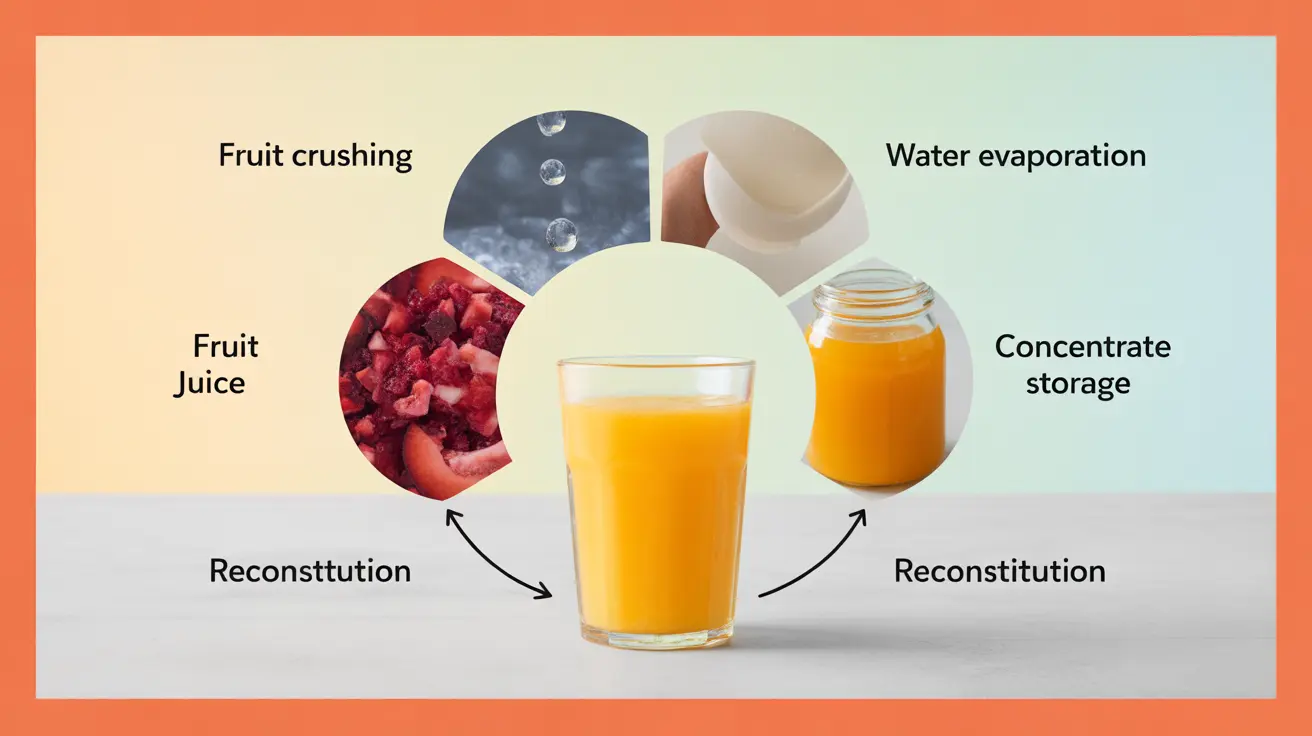Have you ever wondered about the difference between regular juice and juice from concentrate? Understanding what juice from concentrate is, how it's made, and its nutritional implications can help you make informed decisions about your beverage choices. This comprehensive guide explores everything you need to know about concentrated juice products.
What Is Juice from Concentrate?
Juice from concentrate is a beverage product created through a specific manufacturing process that removes water from fresh fruit juice. This concentrated form is later reconstituted by adding water back before packaging and distribution. The process allows for more efficient storage and transportation while extending the product's shelf life.
The Manufacturing Process
The concentration process typically involves several steps:
- Initial fruit crushing and juicing
- Heating the juice to evaporate water content
- Filtering and pasteurization
- Storage of the concentrated form
- Reconstitution with water before packaging
Nutritional Comparison with Fresh Juice
When comparing juice from concentrate to fresh juice, several nutritional factors come into play. While the basic nutrients remain present, the processing method can affect certain aspects of the juice's nutritional profile.
Retained Nutrients
Juice from concentrate typically maintains these key nutrients:
- Essential vitamins (particularly Vitamin C)
- Natural fruit sugars
- Some mineral content
- Certain antioxidants
Potential Nutrient Loss
The concentration process may impact:
- Heat-sensitive vitamins
- Some flavor compounds
- Certain beneficial plant compounds
- Natural enzyme content
Health Considerations and Risks
While juice from concentrate can be part of a balanced diet, there are several health factors to consider before making it a regular part of your beverage rotation.
Added Ingredients
Many commercial juice concentrates may contain:
- Additional sweeteners
- Preservatives
- Artificial flavors
- Color enhancers
Sugar Content
The sugar content in juice from concentrate can be significant, especially in products with added sweeteners. This is particularly important for individuals monitoring their sugar intake or managing conditions like diabetes.
Making Informed Choices
When selecting juice from concentrate products, consider these factors:
- Check the ingredient list for added sugars or artificial additives
- Look for products made from 100% fruit juice
- Compare nutrition labels with fresh juice alternatives
- Consider portion sizes when incorporating into your diet
Frequently Asked Questions
What is juice from concentrate and how is it made? Juice from concentrate is created by removing water from fresh fruit juice through evaporation, creating a concentrated form that's later reconstituted with water. The process involves heating, filtering, and pasteurization before the final product is packaged.
How does the nutritional value of juice from concentrate compare to fresh juice? While juice from concentrate maintains many basic nutrients, some heat-sensitive vitamins and beneficial compounds may be reduced during processing. The core nutritional content remains similar, though the processing can affect certain natural enzymes and antioxidants.
Are there health risks associated with drinking juice from concentrate? The main health considerations include potentially high sugar content, possible presence of additives, and reduced levels of certain heat-sensitive nutrients. Individuals watching their sugar intake should be particularly mindful of portion sizes.
Can juice from concentrate contain added sugars or artificial ingredients? Yes, many commercial juice concentrates contain additional ingredients such as sweeteners, preservatives, artificial flavors, and color enhancers. Reading the ingredient list is crucial for identifying these additions.
Is juice from concentrate a healthy alternative if I don't consume enough fresh fruits? While juice from concentrate can provide some nutrients found in fruits, it shouldn't be considered a complete replacement for whole fruits or fresh juice. It can supplement a balanced diet but should be consumed in moderation due to potential added sugars and reduced nutrient content.




